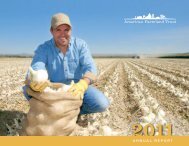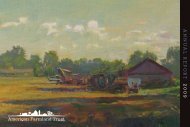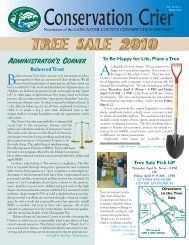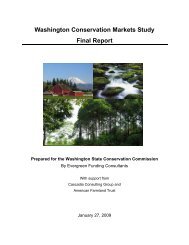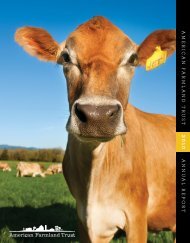Appendix G3 â Sample survey letter Pacific Northwest States Office ...
Appendix G3 â Sample survey letter Pacific Northwest States Office ...
Appendix G3 â Sample survey letter Pacific Northwest States Office ...
You also want an ePaper? Increase the reach of your titles
YUMPU automatically turns print PDFs into web optimized ePapers that Google loves.
<strong>Appendix</strong> G3 – <strong>Sample</strong> <strong>survey</strong> <strong>letter</strong><strong>Pacific</strong> <strong>Northwest</strong> <strong>States</strong> <strong>Office</strong>3211 Beacon Ave. S. #26Seattle, WA 98144Phone: (206) 8604222(Date)(Merge printed name and addressRe: Washington Stewardship Incentives ProjectDear _________:We need your help to improve incentives for voluntary conservation stewardship on private lands.Overview:Nearly half of the total lands of the State of Washington are in private agriculture or forestry. So theenvironment of our state depends greatly upon those lands remaining in the hands of successful ranch,farm and forest businesses and upon their being managed with good conservation stewardship.Voluntary incentives are one of our society’s most powerful tools for protecting the land and assuringits sound management. It is critical that the programs that provide these incentives be as strong as ishumanly possible. Hopefully the more effective they are, the less often government agencies will needto regulate to protect the environment and the easier it will be for private natural resource landownersto keep their land in profitable farm and forest business. The Washington Stewardship IncentivesProject is a partnership among several public and private agencies to find ways to strengthen theeffectiveness of these programs.Survey goals:If conservation incentives programs are to be effective, however, they must be designed to be asappealing, as useful, and as workable as possible for the private landowners we hope will use them.That’s where you come in. Would you be willing to complete the enclosed brief <strong>survey</strong> and send usyour views on how to make voluntary incentives for conservation stewardship on private lands morestrategic, more cost effective, more appealing, and more useful to the landowner community?What do we mean by incentives?When we refer to incentives, we’d like you to think broadly, about various forms of conservationincentive programs provided landowners to improve the environment. For example:□ Conservation stewardship costshare programs that pay all or part of the cost of completingconservation improvements or management practices on private lands [e.g. the EQIP(Environmental Quality Incentives Program) through USDANRCS, or LIP (Landowner IncentivesProgram) through the Washington Department of Fish & Wildlife].□ Conservation setaside programs that pay landowners for setting aside natural resource businesslands for conservation purposes [e.g. CRP (Conservation Reserve Program) CREP (ConservationReserve Enhancement Program), WRP (Wetlands Reserve Program), through NRCS, or otherconservation easement programs through both private and public agencies].
<strong>Appendix</strong> G3 – <strong>Sample</strong> <strong>survey</strong> <strong>letter</strong>□ Tax incentives programs that reward landowners for keeping land in agriculture or forestry or formanaging it in a way that is friendly for the environment [e.g. current use taxation and publicbenefits rating system tax relief programs administered by local governments].□ Land protection programs that pay landowners to keep their lands in agriculture or forestry and outof development [e.g. FRPP (Federal Farm and Ranchlands Protection Program) and local PDR(purchase of development rights) programs administered by local or state governments or throughvarious land trusts, or the Forest Legacy Program administered by the Washington Department ofNatural Resources and the U.S. Forest Service].□ Other. Other incentives that are made available to landowners in exchange for voluntary actionswith respect to private lands that protect those lands from development or that improve theirmanagement for conservation stewardship. This may include market certifications, technicalassistance, public recognition, or other ways that encourage private land stewardship.Optional contact information:If you wish to provide an email and contact information with your <strong>survey</strong> response, we’ll do our bestto keep you informed about the progress of this project and promise not to make your opinions public.But if you prefer to remain anonymous, you need not identify yourself – we respect your wish to haveyour identity remain confidential. In either case, we’re looking for your opinions and we promise tofactor in your ideas as we develop proposals that may be presented to our State’s policy community inthe months ahead.Thanks, sincerely, for your time and energy in helping us understand the perspectives of Washington’sprivate landowners on these important public issues.Yours truly,Don StuartAmerican Farmland TrustEncl: Landowner <strong>survey</strong> form


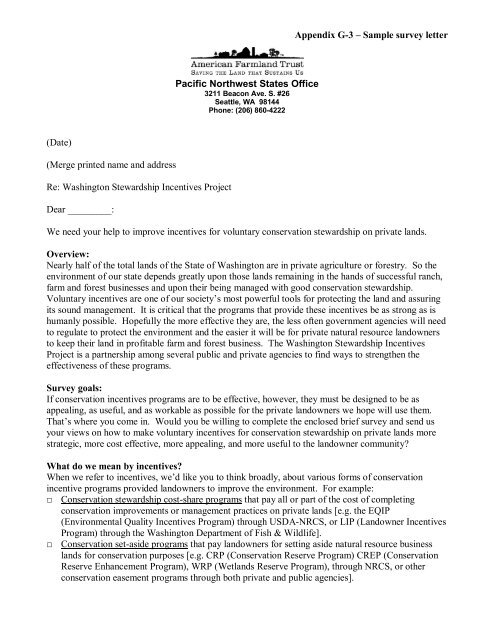
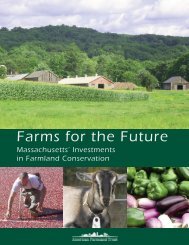

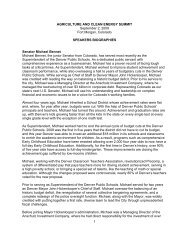
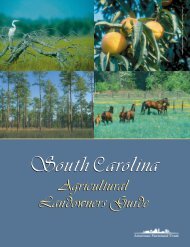
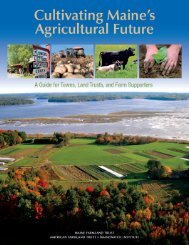
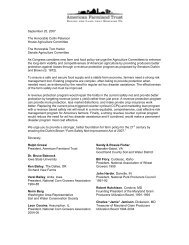
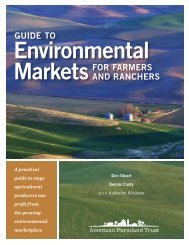
![Farmland by the Numbers [PDF] - American Farmland Trust](https://img.yumpu.com/31549391/1/190x245/farmland-by-the-numbers-pdf-american-farmland-trust.jpg?quality=85)
